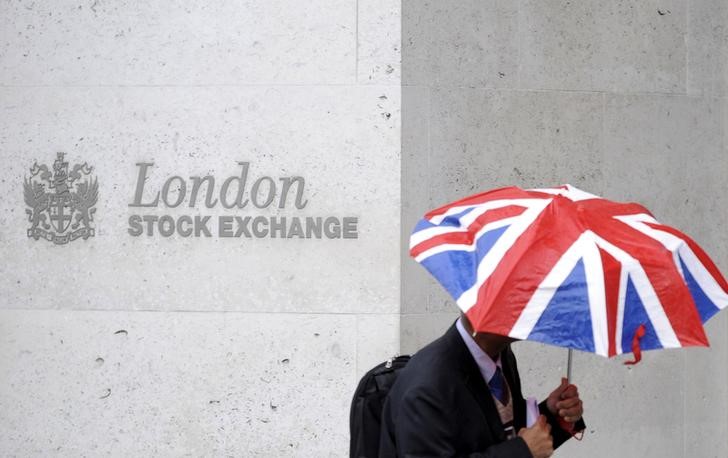By Peter Hobson
LONDON (Reuters) - Britain's top share index is set to rise around 4 percent by the end of 2017, lagging this year's gains, analysts polled by Reuters said, while warning politics could upset predictions.
Expectations were slightly more optimistic than a poll three months ago which said the benchmark FTSE 100 (FTSE) index would dip in early 2017 before recovering.
The median forecast of views from more than 20 traders, fund managers and strategists sees the FTSE 100 ending this year at 6,800 points before climbing to 6,900 points by mid-2017 and 7,065 points by the end of next year.
In early October the median forecast for the index to end this year was also 6,800 points, declining to 6,750 by June and advancing to 7,000 by the end of 2017.
The FTSE 100, which closed on Tuesday at 6,779.84 points, has reversed two years of falls to rise almost 9 percent in 2016, helped by a commodities rally and a slump in the pound after Britain's vote to leave the European Union that inflated the incomes of the FTSE's international firms in sterling terms.
Political unpredictability is expected to continue.
"We are facing a number of market risks and shocks that are yet to be priced in," said Atif Latif, director at Guardian Stockbrokers.
Poll respondents listed elections in Europe, including its largest economies Germany and France, uncertainty around Brexit negotiations, a hard economic landing in China and European Central Bank tightening as risks for UK stocks.
"A hard Brexit is the most likely outcome and will continue to put pressure on the domestic names," Latif said. "There is an increasingly high probability of an EU zone breakup."
A wobble in China's economy could also derail surging commodity prices that have underpinned the FTSE, with the UK industrial metals index (FTNMX1750) up more than 200 percent so far in 2016 and the mining index (FTNMX1770) up around 100 percent.
But other analysts are more positive, noting markets have taken this year's political shocks in their stride.
Britain's conservative government appears to be moderating its demands for an economically damaging "hard Brexit," and the country's more moderate parliament is poised to take a greater role in negotiations.
Donald Trump's victory in the U.S. presidential election may also herald a shift from the monetary stimulus that provided life support to the global economy after the financial crisis to government spending on infrastructure to boost growth.
"More fiscal [stimulus] is expected in Europe thanks to Trump, hopefully in the UK too," said Mike van Dulken, head of research at Accendo Markets.
Strengthening of the U.S. dollar fuelled by resurgent U.S. growth could further boost British stocks by raising the value of their international earnings, he added.

The FTSE is expected to slightly underperform Europe, with the Reuters poll forecasting the broader STOXX Europe 600 index (STOXX) rising around 6 percent by the end of 2017. [EPOLL/FRDE]